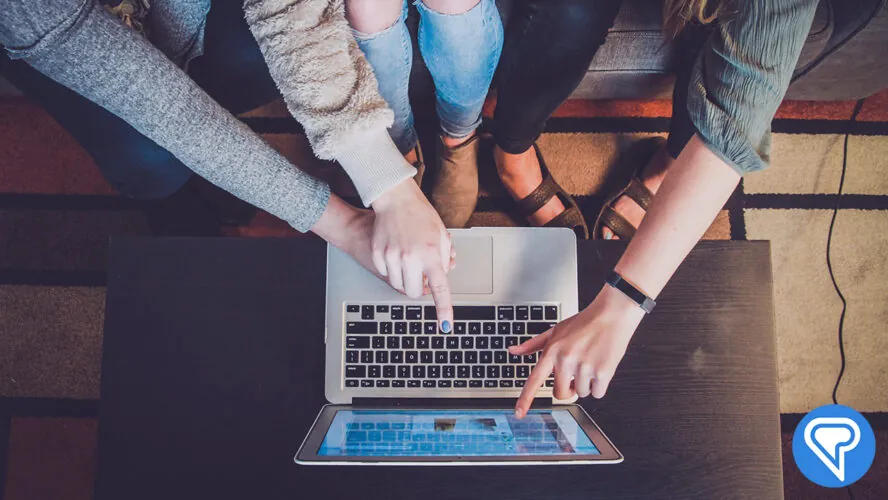I want to talk about blogging and podcasts as a means of enriching your language learning content, variety and, particularly, as a step from beginner material to the more difficult, more demanding material.
I recently did a “Streak with Steve” live stream video. We’re encouraging people to commit to maintaining a streak at LingQ, so I have these live stream sessions where I talk a little bit about what I’m doing. One of the things I’ve done recently is I have discovered a new blog in Croatian. I also discovered a podcast in Croatian, at least a radio station. This really enriches my learning material and this type of content is easier than say an audio book or e-book that I imported into LingQ.
Now, my next video on my YouTube channel will be a discussion in French. This is a discussion with a person called Hugo who has a website called InnerFrench. He has a podcast where he talks about things that are of interest to him. It’s a real person talking. It’s not something written for a learner. It’s very much appreciated as a source of medium-difficulty French content.
There are podcasts to help people learn a variety of languages, Chinese, Korean, you name it, where there’s a mixture of English in the target language and it’s more aimed at beginners. So that’s another option. I tend not to use those, but I do find that these blogs and podcasts as intermediate learning material are tremendously useful because they give you an insight. They give you an insight into the culture and events in the country of the language you’re learning and the level of difficulty is just that next level.
In my case with Croatian, having gone through the mini stories on LingQ, I found the e-book that I imported was a little too difficult, whereas I’m finding that these podcasts and blogs are just the right level. I’m very happy to report that I downloaded some mp3 files from the Croatian radio station I’ve been listening to, put them on Happy Scribe and the transcription is actually very good. There’s the odd, funny word, but by and large good, better than was the case with Arabic. Even if it’s a podcast with no audio, you can attempt to use these transcription services. Far better, of course, is if a transcript is provided.

I actually have had two discussions with podcasters. One, Andrew, does his podcasts in English. He’s a Canadian who lives in Korea, so we did an interview in English for his channel. He is based on subscriptions, so you subscribe to him for a year for $90, which I think is very reasonable. He provides transcripts for all of his podcasts, as well as some exercises and other worksheet-type material.
Obviously, if you’re going to learn a language you’re going to end up spending some money, in most cases. You may, of course, not. You may borrow books at the library and find stuff on the internet and have language exchanges and so on. However, very often you will end up paying for a tutor online, you will end up buying a book, you may eventually buy an audio book or an e-book. You may have to pay for transcription services or pay for this podcast service that Andrew has. I think Hugo has a similar program where he provides his transcripts free, but then he has courses. These people are putting their time, their energy and their creativity into creating these podcasts, so they certainly deserve to have their time and effort compensated in some way.
To me, that is an excellent kind of input material. It may lead to online discussions with those people or it may not, but it fills a real need. In fact, I would like to know more about these kinds of materials. If you know about people who are podcasting in this way, just natural, either monologues or discussions with or without transcripts, ideally with transcripts, please let me know. We want to collect a list of this kind of content and make people aware. LingQ put out a Tweet about some similar resources for Portuguese. This is a growing area of content creation. Unlike textbooks it’s constantly renewing itself. It’s more natural and I think it fills a real need.
So, podcasts and blogs, although they obviously don’t have audio, are to my mind the next step after we get through the sort of beginner or mini story-type stage.








3 comments on “Enrich Your Language Learning With Blogs and Podcasts”
Comments are closed.
I hope to Learn English from this website
I’m wondering what your thoughts are between passive and active learning. Does it help if I listen to a video or podcast that reads to me in English then German while I’m doing other things? Do I digest this information? I’m finding it difficult to find a sit down active program that engages me? I’m a 52 yr Canadian who now lives in Germany.
Hi Tammy,
Steve’s response to your question:
Yes. as long as you have a chance to understand what you are listening to, for example by being able to read a transcript and look up words, then this listening will be very beneficial. If you don’t understand anything, then it is not very beneficial. That is the basic principle of language learning at LingQ.